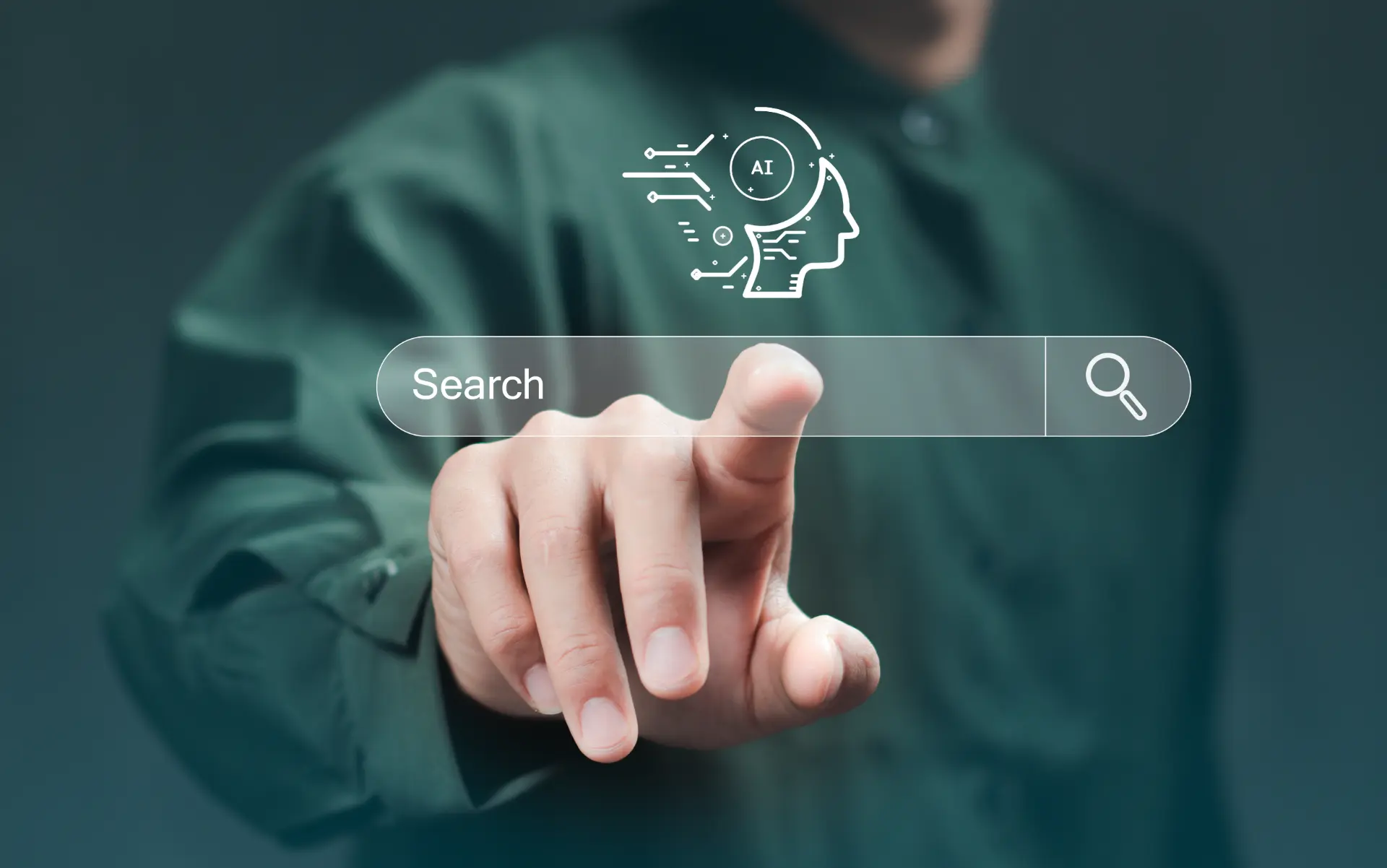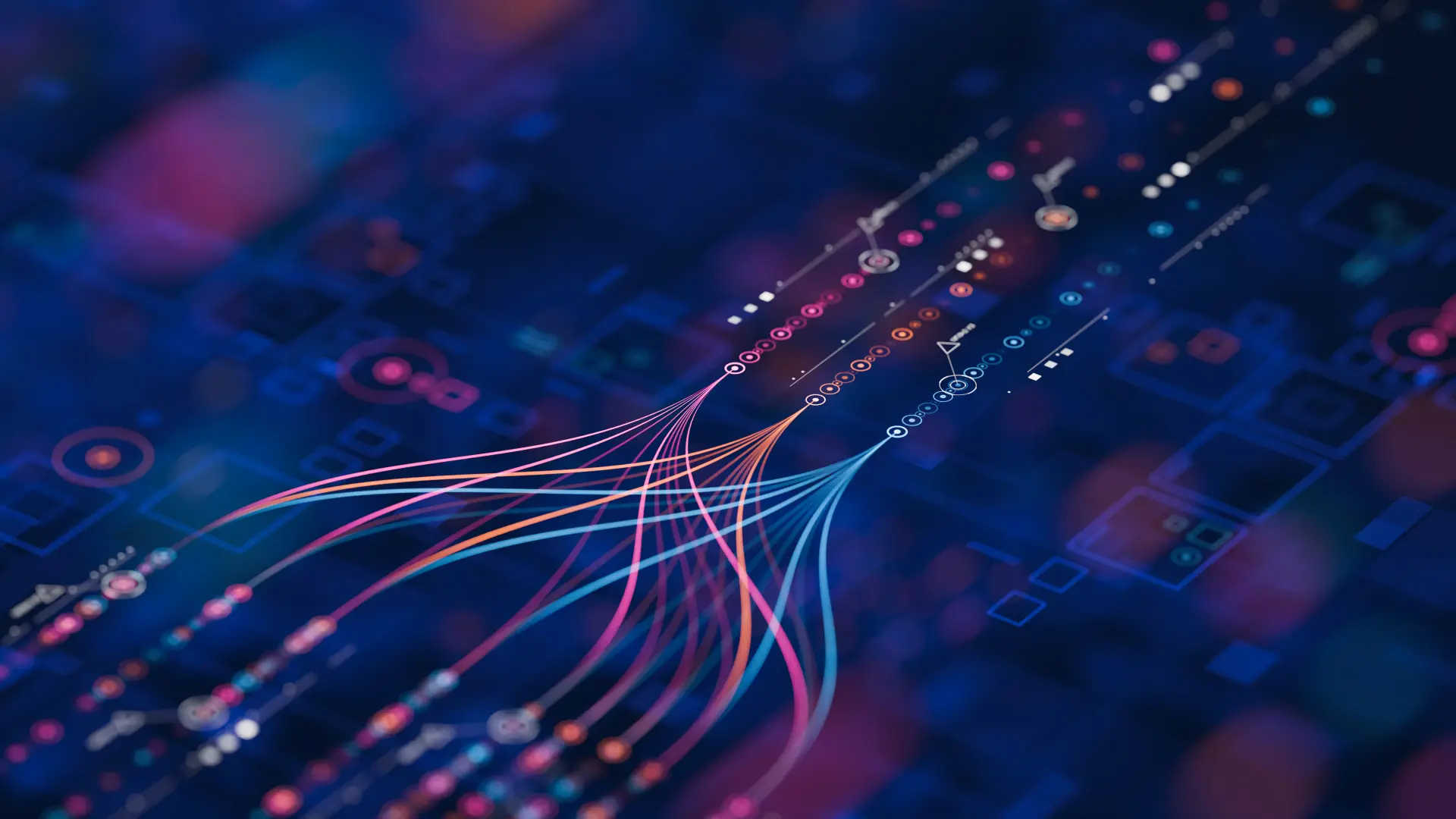Table of contents
- Artificial intelligence and social media: new challenges for online security
- The use of artificial intelligence for social media security
- The impact of generative content and AI algorithms on security
- AI in social media: managing fake profiles and data protection
- Security and ethical control: a difficult balance
- How artificial intelligence improves user experience on social media
- Future risks and challenges for cyber security
- The future of security in social media and AI
Artificial intelligence and social media are reshaping the digital world at an unprecedented pace. AI and social media have become a powerful combination to improve user experience and security, but they also raise numerous cyber security issues.
Artificial intelligence and social media: new challenges for online security
With the support of AI algorithms and advanced machine learning techniques, social media platforms can now address threats that, until recently, would have been impossible to manage in real time.
In this article, we will explore how artificial intelligence is employed in social security, its capabilities, risks, and future challenges.
The use of artificial intelligence for social media security
In the context of social networks, content generation is no longer just a simple exchange of messages or posts: billions of pieces of information are created and shared every second.
The need to keep this environment safe has become crucial to prevent spam, inappropriate content, and harmful attacks. This is where artificial intelligence can be of great help.
Thanks to machine learning techniques, platforms are able to analyze millions of data points and identify suspicious patterns.
Example
AI in social media can detect potentially harmful or violent behavior and remove it in real time. This data analysis enables preventive protection and more effective management of spam and offensive content.

The impact of generative content and AI algorithms on security
One of the most recent developments in artificial intelligence applied to social media is generative AI, which can autonomously create content.
This technology is used by brands to produce innovative content, but its power can also lead to new threats.
When AI generates content, it may inadvertently create misleading or even dangerous information. Therefore, the role of AI algorithms becomes essential in regulating and controlling such processes.
Platforms use these algorithms to monitor generated content, identifying suspicious patterns, unsafe links, and potential scams.
This significantly improves online security, as it allows social platforms to block attacks before they can spread on a large scale.
AI in social media: managing fake profiles and data protection
Managing fake profiles is one of the main challenges for security on social networks. These accounts, often created for malicious purposes, undermine the platform’s reliability by spreading fake news, spam, or scams.
Artificial intelligence is a crucial ally in combating the proliferation of such accounts, thanks to its ability to analyze real time data and identify suspicious behavioral patterns.
Fake profiles can take various forms: bots programmed for automatic interaction, cloned profiles impersonating real users, or fraudulent accounts created for financial scams and phishing.
Their spread is not only a security problem but also a trust issue, as they weaken perceptions of authenticity and transparency on platforms like Facebook, Instagram, and Twitter.
Recognizing fake profiles through data analysis
AI technology, supported by machine learning, enables social media platforms to recognize these suspicious accounts with increasing accuracy.
Data analysis algorithms use information such as posting frequency, the type of shared content, interaction patterns, and follower growth rates.
Example
If a profile interacts with thousands of users in just a few minutes, this behavior could be an alert signal that artificial intelligence can detect and flag as potentially harmful activity.
Another aspect analyzed by AI algorithms is the type of posts published and the language used, to automatically identify and flag spam and fake news.
Neural networks can recognize the typical language patterns of fake profiles, such as repetitive messages or excessive use of popular hashtags to attract followers.
Protecting personal data and user privacy
In addition to managing fake profiles, protecting users’ personal data is a fundamental issue.
Social media platforms collect vast amounts of information about each user, such as preferences, interests, and geolocation data.
While these data are used to improve user experience, they also pose risks to privacy and security.
Artificial intelligence plays a key role in safeguarding this sensitive information. Thanks to advanced machine learning systems, it is possible to monitor access attempts and detect privacy breaches.
Example
AI can identify suspicious logins to profiles or unusual activities that could indicate a phishing attack. AI in social media thus helps maintain constant surveillance over user data, preventing data breaches and unauthorized access.
The use of artificial intelligence to prevent identity theft
Identity theft is one of the most common cybercrimes on social media, where profiles can be hacked or cloned to impersonate others. Once again, AI in social media is essential.
Some algorithms are trained to recognize suspicious duplications of images, names, and other identifying elements, intervening immediately to block suspicious profiles.
This is particularly useful on platforms where visual data, such as photos and videos, are frequently used to deceive other users.
Example
Facebook and Instagram use machine learning technologies to detect duplicate profile images, notify the original user, or automatically block the cloned account.
Real time notifications sent to users help prevent more extensive damage and maintain trust in the platform.
Security and ethical control: a difficult balance
The use of artificial intelligence in protecting personal data and controlling fake profiles also raises important ethical questions.
While ensuring user security is essential, continuous monitoring and detailed behavioral analysis risk invading users’ privacy.
Social media platforms must strike a balance between the need for security and respecting privacy, using AI tools that are transparent and compliant with data protection regulations.
The future of social security will therefore require increasingly responsible and aware use of AI in social media, developing clear regulations and policies to ensure that user data is used ethically.
How artificial intelligence improves user experience on social media
In addition to security, AI in social media is used to improve the user experience. By analyzing user preferences, artificial intelligence personalizes the browsing experience, suggesting content, advertisements, and targeted interactions.
Example
Through machine learning, platforms can propose relevant content, increasing engagement and enhancing the quality of time spent online.
This level of personalization is only possible thanks to real time data processing and analysis. However, it remains essential that these tools are managed responsibly to avoid compromising data security.
Future risks and challenges for cyber security
Despite the benefits, the use of artificial intelligence also involves risks. On one hand, AI can help improve security; on the other hand, if misused, it can amplify existing risks.
Platforms must therefore work to balance the use of generative AI and content creation technologies with clear regulations and rigorous security policies.
The future of cyber security in the social media world must necessarily take these aspects into account. Advanced technologies like generative AI require control measures that protect content integrity and user privacy, without sacrificing innovation and interaction.
The future of security in social media and AI
Artificial intelligence and social media are now inseparable, affecting both security and the quality of user experience.
As technologies continue to evolve, machine learning and AI algorithms will be essential tools for ensuring online security.
However, for a secure future, it is crucial that these tools are used ethically and transparently, balancing the need to protect data and enhance social interaction without compromise.
Questions and answers
- How does artificial intelligence contribute to social media security?
AI helps social media monitor and block harmful content, preventing threats and improving data protection. - What risks does the use of AI on social media involve?
If misused, AI can amplify risks such as the spread of fake news, unethical profiling, and privacy violations. - What is generative AI and how does it impact social media?
Generative AI autonomously creates content, helping brands but potentially generating inappropriate material. - How are fake profiles detected on social media?
Through machine learning and data analysis, AI identifies suspicious behaviors and fake profiles to limit scams and fake news. - How does AI improve user experience on social media?
It analyzes user preferences, personalizing content and ads based on their interests. - What role does machine learning play in social media security?
Machine learning analyzes large data volumes, identifying threats and harmful content in real time. - What are the challenges for protecting personal data on social networks?
AI helps protect personal data but requires security policies to avoid privacy violations. - How is the use of AI regulated on social media?
Platforms adopt policies and security algorithms to ensure ethical and secure use of AI, especially with personal data. - Can artificial intelligence combat fake news?
Yes, AI detects and removes misleading content through data analysis, protecting the quality of shared information. - What are the future prospects for AI in social media security?
The evolution of AI will bring new security tools but also new ethical and operational challenges for social networks.

